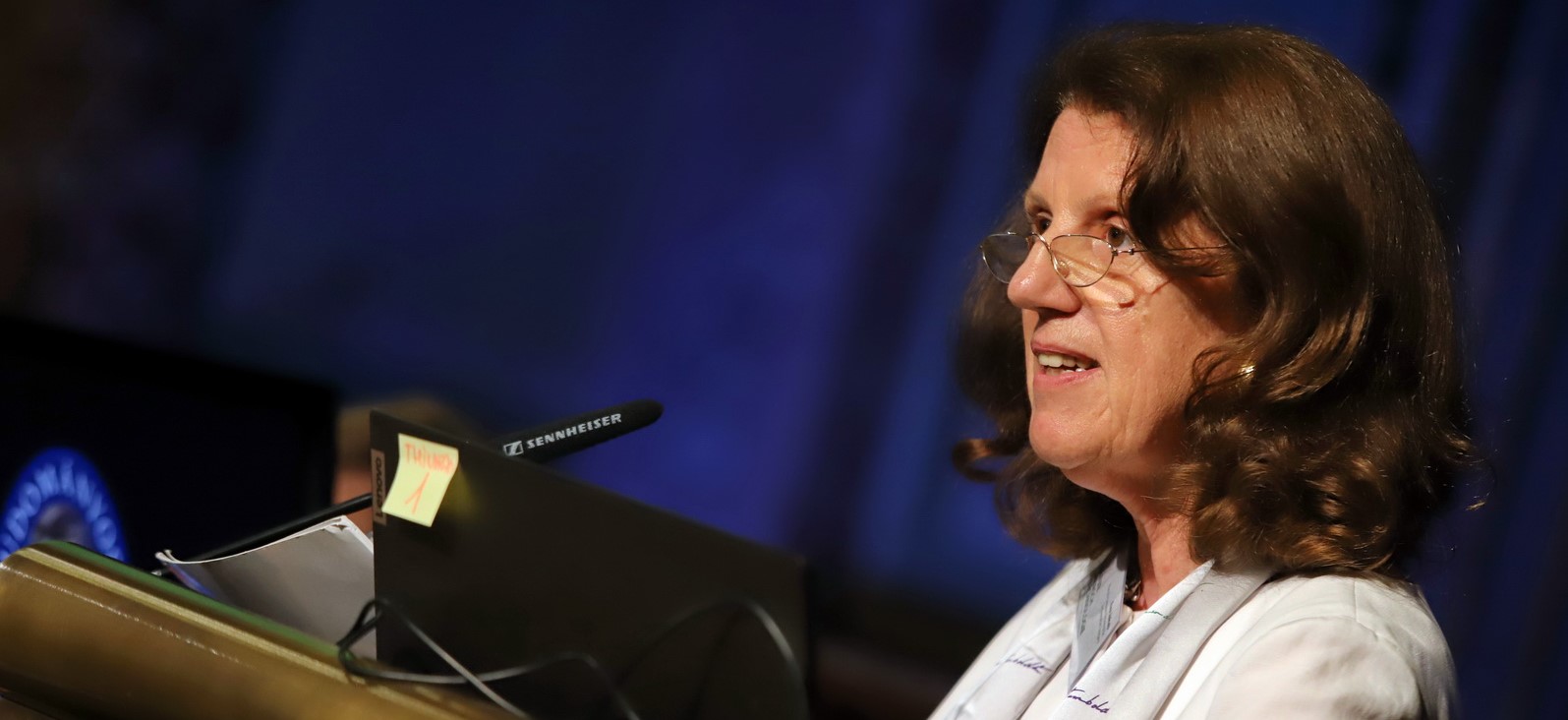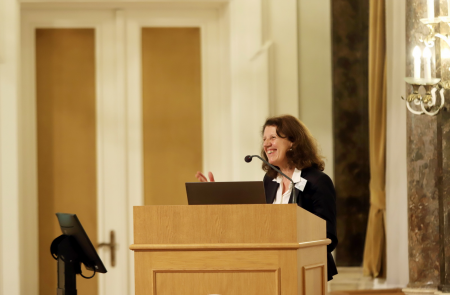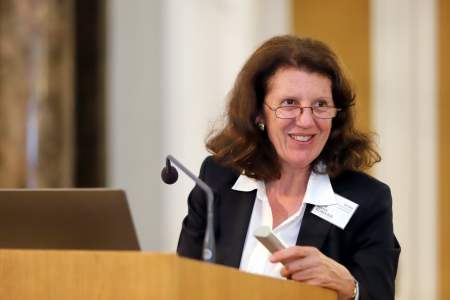
Prizes, scholarships, acknowledged research, at least a dozen high-ranking positions, student-friendly classes, high-quality teaching - these are the characteristics of Prof. Dr. Éva Jakab, a lecturer at the Faculty of Law and Political Sciences of the University of Szeged, who was awarded the Hungarian Order of Merit's Knight's Cross on 20 August. We interviewed her about her profession, challenges, leisure time and also her family.
- What does the award mean to you?
- I was very pleased, just for that reason alone that when I saw the list of the awardees, I realized that it was a lifetime achievement award. It felt good to be recognized for my four decades of teaching, scientific and research work. I was nominated for the award by the Károli Gáspár University of the Reformed Church.
- I saw in your biography that you had received recognition early on in your career. For example, you received a Ministerial Commendation in 1989.
- Yes, I was very honored back then, but the award was for the young teacher I was at the time. We don't think about awards and recognitions when we work, but when we receive them we see them as a positive experience and motivation.
-What challenges you the most?
- I’m faced with a lot of challenge, especially in those fields where you see untapped areas for research, problems and unanswered questions. You can see what conferences are worth attending, what workshops could be organized in those areas, which are also challenging. But equally professionally challenging are the research opportunities that come with winning a grant. Unfortunately, this is the only time we have the opportunity to do research in peace. Most of these are abroad, where there are libraries where you can spend weeks, months, or even six months or a year, working undisturbed, developing the foundations of studies and books.
- How does a legal scholar research?
- There are several phases to a research project: first of all, you have to read a lot, because you always have to go back to the very first step of the research, to the original sources. So you need to know as much as possible about the period in order to start the particular research. You also have to look at what the literature says and compare the two. In practice, this whole process is like a puzzle that has to be dismantled and then put back together in a way that makes it innovative. That's the intellectual game in it.

- What is it that you do not know about Roman law?
- There is a lot I don't know about it. Obviously I have a basic, comprehensive knowledge, but when I start to think about a problem in more depth, I realize that the situation is not so homogeneous and clear-cut in the light of the details. You have to go deeper. And each era - 19th century or 21st century - has its own intellectual trends (philosophy, legal theory and so on) which influence our scientific thinking. So there are always new and emerging issues in our profession.
- What is your relationship with your students?
- I like teaching, giving both small and large lectures. The best feeling is when I see the feedback that students are interested in what I am talking about. It makes me feel motivated. For me, teaching is a pleasure, when I'm in the classroom, I leave everything else outside and concentrate on transferring my knowledge to the students. It's a particular pleasure that there are always students who want to go deeper into the topics, that's probably the most important feedback for me.
- Looking back over the last forty years, what would be one moment that you would highlight, that you are grateful for and will never forget?
- There are many moments like that, but perhaps the most memorable was when I was awarded a DAAD scholarship early in my career, in 1986, which enabled me to spend nearly a year in Munich. This allowed me to hone my German skills, but also to pay particular attention to Roman law. The lecturers, together with the students, discussed important issues in seminars. This was a very interesting and new way of learning for me, and it was these seminars that deepened my interest in the profession. I owe all this to the then chairman, Elemér Pólay, and his German contacts. My second, equally formative experience was also in Germany in 2000. I spent more than a year in Munich on a Humboldt scholarship. During this period I managed to put together the draft of another book. This resulted in two monographs in German summarizing my two years in Munich. The next big boost came in 2017/18 when I was elected as a visiting fellow at All Souls College, Oxford University, England.

- Have you had or do you have a role model?
- Yes, Elemér Pólay, who, as I have already mentioned, was the then head of the Department of Roman Law at the University of Szeged. He was a scholar and teacher of a quality that earned him international respect. And of course there are German professors who I look up to as role models, especially Dieter Nörr who helped me a lot in my academic career in Munich.
- What do you do in your spare time?
- I do sports whenever I can. I like to ride horses, do yoga, run with our dog - exercise relaxes me, it relaxes my mind. But we also have a small garden, which I also enjoy tending. And, of course, spending time with my family and grandchildren is very important to me.
- To close: do you have a motto?
- Yes, I do and it is usually the one I share with my listeners: it was written by the ancient philosopher Seneca: "Vivere militare est" - "Life is like military service." In other words, you can get somewhere in life if you are very disciplined in what you do and you go along the path you choose. Concentrating on what you are doing and seeing it through - that is the most important thing.
SZTEinfo - Tamara Pósa
Photo by Dóra Molnár

